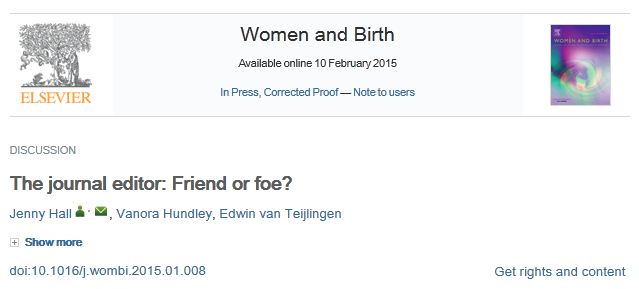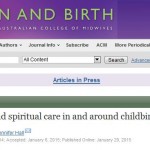
Editors of academic journals are regularly cursed by academics worldwide. At universities across the globe we can regularly hear expression such as “Who does the editor think he is rejecting my paper?” or “Why does it have to take six months (or more) to find out my paper is rejected?” or “Why does the editor not understand how good/novel/innovative/… our paper is? These kinds of expression of dismay may or may not be accompanied by an expletive. Being both busy editors and well published authors we thought timely to put pen to paper and explain the work (role and limitations) of the typical editor of an international academic journal.
First, being an editor is not all bad, and is actually a privilege. It is an opportunity to nurture new authors, be at the forefront of your discipline and it is part of being a ‘serious’ scholar. However, we have been at the receiving end of the wrath of authors dissatisfied with something we did or didn’t do as an editor AND we have been disappointed as authors with what we perceived to be, poor editorial decisions!
We wrote a short outline of the proposed paper and send it to the editor of Women and Birth. The idea was readily accepted and resulted in a paper published this week in the scientific journal.
The paper includes little snippets of insight and advice to authors. For example, a reminder that the average editor of an academic journalist an unpaid volunteer, usually a full-time lecturer and/or researcher with a busy day job, who does most of her editorial work on Sunday morning when the kids are still in bed or Tuesday night after the second-year marking has been completed. We hope that knowledge of the editors’ role will help authors (a) understand the submission process better; and (b) be a little bit more patience with the editors. And, last but not least, we hope our article helps the development of editors of the future.
Jenny Hall, Vanora Hundley & Edwin van Teijlingen
CMMPH
Reference:
Hall, J., Hundley, V., van Teijlingen, E. (2015) The Journal editor: friend or foe? Women & Birth (accepted). http://www.sciencedirect.com/science/article/pii/S1871519215000104
 New paper published on spirituality and midwifery
New paper published on spirituality and midwifery










 Expand Your Impact: Collaboration and Networking Workshops for Researchers
Expand Your Impact: Collaboration and Networking Workshops for Researchers Visiting Prof. Sujan Marahatta presenting at BU
Visiting Prof. Sujan Marahatta presenting at BU 3C Event: Research Culture, Community & Can you Guess Who? Thursday 26 March 1-2pm
3C Event: Research Culture, Community & Can you Guess Who? Thursday 26 March 1-2pm UKCGE Recognised Research Supervision Programme: Deadline Approaching
UKCGE Recognised Research Supervision Programme: Deadline Approaching ECR Funding Open Call: Research Culture & Community Grant – Apply now
ECR Funding Open Call: Research Culture & Community Grant – Apply now ECR Funding Open Call: Research Culture & Community Grant – Application Deadline Friday 12 December
ECR Funding Open Call: Research Culture & Community Grant – Application Deadline Friday 12 December MSCA Postdoctoral Fellowships 2025 Call
MSCA Postdoctoral Fellowships 2025 Call ERC Advanced Grant 2025 Webinar
ERC Advanced Grant 2025 Webinar Update on UKRO services
Update on UKRO services European research project exploring use of ‘virtual twins’ to better manage metabolic associated fatty liver disease
European research project exploring use of ‘virtual twins’ to better manage metabolic associated fatty liver disease